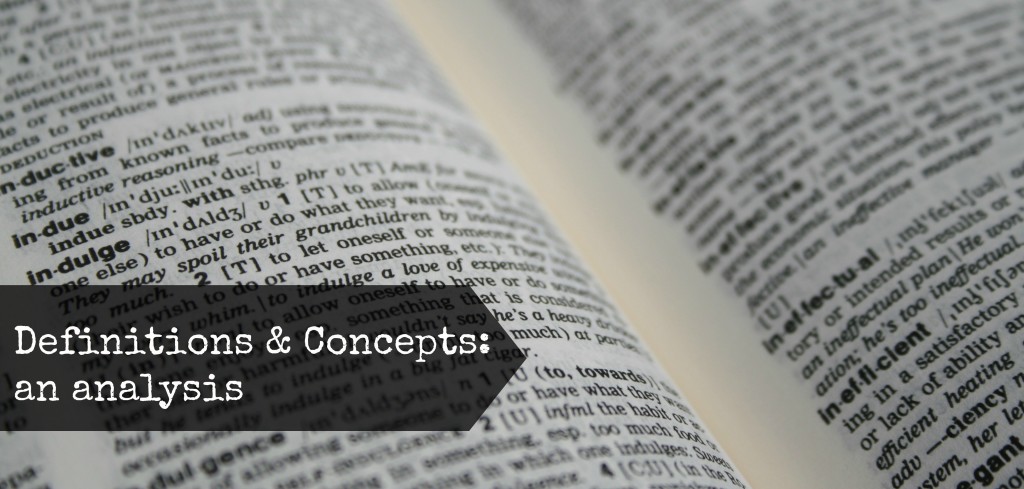I recently got into a heated debate over the notion of privilege. My opinion was that I come from a privileged family because we have the opportunity to do so many things and we are aware of everything that is available. My opposition’s opinion was that privilege is something that royalty has because it was given to them; she believed that she has worked hard (which she undoubtedly has), and therefore she is not “privileged” (which I disagreed with).
We argued back and forth, each stating and re-stating our opinions and thought processes, until we finally agreed to disagree because we were discussing two different things: I was looking at privilege as a concept, and she was looking at privilege as a dictionary definition.
Depending on the terms we use, and the context in which we use them, we come to many different assumptions. This is how miscommunication is built up.
There has been much outrage at the media in recent years regarding the impact that the media is having on consumers, particularly women. Angered that the media has been drilling it into our brains that we need to be “super thin,” consumers are retaliating and “embracing their curves.” Thus, we are coming to an age of interesting conflicting information coming from all angles: some advertisements appeal to the “skinny look,” others appeal to the “curvy look.” But what exactly do we mean when we use the terms “thin,” “skinny,” “curvy,” “plus size,” “obese,” and so on?
Size zeros are being slandered as “too thin” these days—but if you’re five feet tall, there’s a good chance that at a healthy weight you’ll be a size zero or a size two. On the other side of the map, we have consumers getting angry that size six is “plus size,” when in fact it is considered “below average” (whatever “average” means). Mixed in with this, there’s also the problem that some who are considered “plus size” are actually quite healthy, physically, but there are also many others who are considered “plus size” who are not healthy (and the same goes for the size zeros). What constitutes a “curvy figure”? Does one have to carry excess weight to be “curvy”? Is there a cut-off point in clothing sizes?
Other notions that have been cropping up a lot lately are “fat acceptance,” “thin privilege,” and “skinny fat.” These terms are thrown around wildly in accusation or as terms of endearment. It has gotten to the point where we don’t really know what to think anymore, or what we’re even talking about when we use these terms.
The problem here is that no one agrees on what any of these terms and phrases mean. They are being used loosely in many contexts without thought to the real meaning of them. Our lack of communication, resulting from not having a clear understanding of what we mean by the terms we use, is perpetuating this cycle of the media playing with consumers. The only way poor body image can be improved is if we know what we mean when we use these terms, and if we then explain what we mean when we use them to other people.

Stupid subscription not working.
ANYWAYS… the term radically decentered self is really relevant here. Media has come to realize that insecure, uncertain people are easier to manipulate. Even looking within the same magazine, say check any random health magazine… you’ll often have articles supporting “being comfortable with yourself” but also images of highly fit women with perfect abs.
This is intentionally done. The emotional reaction of being internally torn by these mixed images is resolved often on the same or next page… by a product. You’re left unsure, and they give you an answer. “If you buy this, you can be comfortable with yourself AND be like them.” We’re always selling a magic cure, but behind the magic cure is an image. A sense of achieved, accomplished, certain self.
Being thin isn’t what anybody’s really after. It’s the responses that they think they’ll get from it, real or otherwise. It’s always some sort of faintly understood ideal we’re chasing, and media intentionally muddles that image to keep us vulnerable.
Or, you know, they actually care about us and are simply offering different opinions to expand our minds. Pick your side.
Richard- I really have to figure out that subscription thing. Thanks for letting me know about it. I’ll try to solve the problem this weekend. And what you’ve spoken about- the juxtaposition between “being comfortable with yourself” yet also showing unrealistic, unattainably perfect bodies- is something I just wrote a paper about. You’re absolutely right; it’s all intentional and to get a reaction.